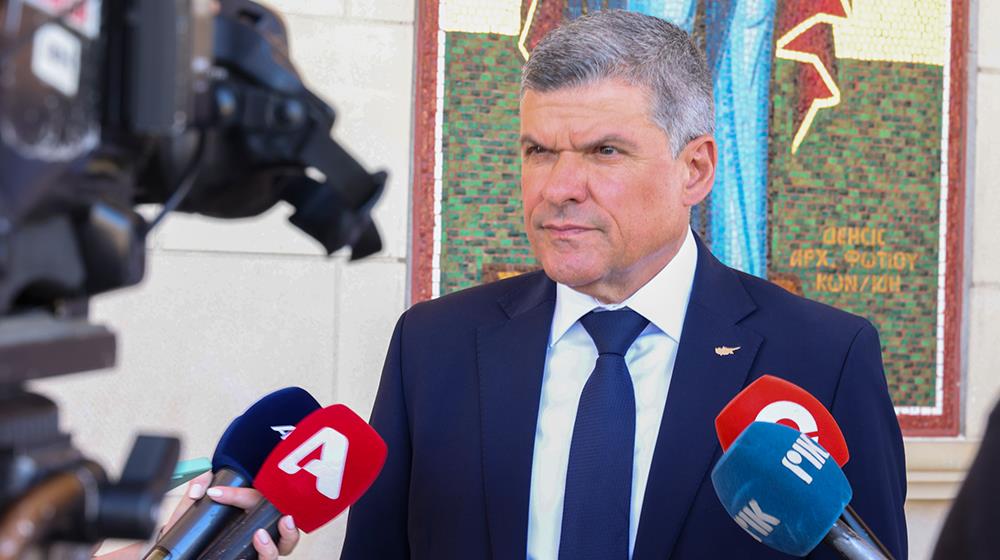Cyprus' Minister of Energy, Commerce, and Industry, George Papanastasiou, has clarified that the responsibility for geopolitical risks related to the implementation of the Cyprus-Greece electrical interconnection project, known as the Great Sea Interconnector, lies with the project's implementing entity.
He also expressed support for the existing regulatory framework established by the Cyprus Energy Regulatory Authority (CERA) concerning this issue.
Speaking during an extraordinary session of the parliamentary Energy Committee on 28 August, Papanastasiou pointed out that "the risk is on the new implementing entity." This statement follows a request from the new implementing body, Greece’s Independent Power Transmission Operator (IPTO), to CERA to amend the regulatory framework to cover geopolitical risks and costs incurred if the project is not completed due to external factors. The current framework allows for the possibility that CERA "may" consider these risks, but it does not guarantee any coverage.
CERA President Andreas Poullikkas noted that geopolitical risk was not a regulatory issue. "It requires recognition by the state, as it is a non-regulatory matter," he said. Poullikkas added that if the state acknowledged the geopolitical risk, CERA would take it into account when making its decision. He also highlighted the importance of the word "may" in the regulatory text, as it does not predetermine CERA’s decision.
Poullikkas further informed the committee about discussions with IPTO regarding six proposed changes to the regulatory framework. CERA accepted four of these points, but Poullikkas emphasized that the remaining two are crucial. "CERA’s position is clear: consumers cannot bear any costs without receiving benefits," he said.
Concerns from the Ministry of Finance
When asked about the Ministry of Finance's stance on the risk issue, Finance Ministry Permanent Secretary George Panteli expressed concerns. He said that the Ministry is not able to fully assess the risk from a geopolitical standpoint, nor its broader impact on the economy and the electricity market in Cyprus. This is due to the absence of completed studies, finalized decisions, and a lack of details regarding the financing plan for the project. Moreover, he said that the Ministry has not been provided with the details of IPTO's agreements with Nexans and Siemens, the companies responsible for the cable and voltage converters, respectively. "All these factors prevent a thorough due diligence investigation," Panteli said.
In response, Minister Papanastasiou assured that the issues raised by Panteli would be addressed if and when the Cypriot government decides to become a shareholder in the project, a decision that has not yet been made. However, Panteli countered that the Ministry of Finance does not agree with this approach, arguing that the impacts of the project extend beyond whether the Republic of Cyprus decides to participate, affecting the broader economy.
(Source: CNA)









